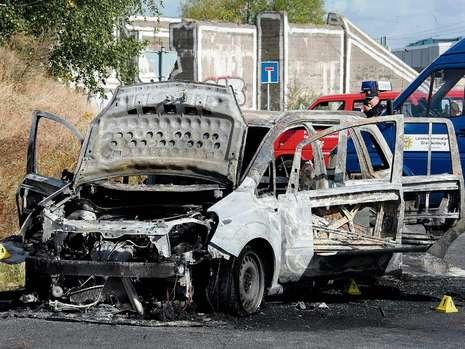Wennemer: Opel Must Die

European governments that are lured into propping up GM’s Opel should resist the urge, said former Continental AG Chief Executive Officer Manfred Wennemer to Bloomberg. Why? It will cost them twice.
Aid for Opel will backfire by postponing closures of outdated factories and saddling rivals including Volkswagen AG and PSA Peugeot Citroen with uncompetitive costs, says Wennemer.
“So what we do is weaken the VWs, the Fords, the Peugeots. They all have to reduce capacity. They all have to pay for restructuring.”
Wennemer, a trained mathematician, figures the European automotive workforce should be reduced about 25 percent to match production with demand. If jobs are saved at Opel, people have to be fired elsewhere. If Whitacre thinks he can save Opel on his own, let him.
Wennemer knows what he’s talking about. He sat on the board of the Opel Trust and voted against a German-financed sale of Opel to Magna International Inc. He said taxpayers had little chance to recoup the €4.5b in proposed aid. He received major flak from Berlin. As an answer, Wennemer resigned from the trust, saying political influence had overtaken commercial interests.
Wennemer thinks any aid for ailing Opel weakens European manufacturers and plays into the hands of the Asian enemy.
Toyota, Hyundai, and Kia are setting up plants in central and Eastern Europe, where labor and production costs are lower than in Western Europe. Daimler AG, which is building a new factory in Hungary, has said wages in the country are typically less than 10 Euros an hour compared with 44 Euros in Germany.
In the meantime, Automobilwoche [sub] reports that Nick reilly promised to keep all German Opel plants open. Guess how much that promise did cost and who will pay for it. Wennemer had prognosticated: ““Germany will definitely come to the party. We will sit a little bit in our corner, but GM’s going to get what they want.”
Reilly graciously lowered the target of 10000 jobs lost to only 95000. Of those, 5300 will be lost in Germany.

Bertel Schmitt comes back to journalism after taking a 35 year break in advertising and marketing. He ran and owned advertising agencies in Duesseldorf, Germany, and New York City. Volkswagen A.G. was Bertel's most important corporate account. Schmitt's advertising and marketing career touched many corners of the industry with a special focus on automotive products and services. Since 2004, he lives in Japan and China with his wife <a href="http://www.tomokoandbertel.com"> Tomoko </a>. Bertel Schmitt is a founding board member of the <a href="http://www.offshoresuperseries.com"> Offshore Super Series </a>, an American offshore powerboat racing organization. He is co-owner of the racing team Typhoon.
More by Bertel Schmitt
Latest Car Reviews
Read moreLatest Product Reviews
Read moreRecent Comments
- Buickman I like it!
- JMII Hyundai Santa Cruz, which doesn't do "truck" things as well as the Maverick does.How so? I see this repeated often with no reference to exactly what it does better.As a Santa Cruz owner the only things the Mav does better is price on lower trims and fuel economy with the hybrid. The Mav's bed is a bit bigger but only when the SC has the roll-top bed cover, without this they are the same size. The Mav has an off road package and a towing package the SC lacks but these are just some parts differences. And even with the tow package the Hyundai is rated to tow 1,000lbs more then the Ford. The SC now has XRT trim that beefs up the looks if your into the off-roader vibe. As both vehicles are soft-roaders neither are rock crawling just because of some extra bits Ford tacked on.I'm still loving my SC (at 9k in mileage). I don't see any advantages to the Ford when you are looking at the medium to top end trims of both vehicles. If you want to save money and gas then the Ford becomes the right choice. You will get a cheaper interior but many are fine with this, especially if don't like the all touch controls on the SC. However this has been changed in the '25 models in which buttons and knobs have returned.
- Analoggrotto I'd feel proper silly staring at an LCD pretending to be real gauges.
- Gray gm should hang their wimpy logo on a strip mall next to Saul Goodman's office.
- 1995 SC No


































Comments
Join the conversation
psarhjinian, I like your attitude and your answer. To add to it, the classical socialism as practiced in the central and Eastern Europe circa between 1945 and 1990 was really good at job creation/preservation and not that great at product creation but still decent. As I said before many of the products made in Eastern Europe decades ago are an order of magnitude better than the current offerings by the Western companies from their factories in China. Capitalism, as practised in the last 60 years, on the other hand is extremely good at product creation (not a good product often but at least cheap) but really miserable at job creation or preservation. Since humam animal is above all a consumer and a producer(worker) only after that, capitalism looks a lot better from the than it actually is. Overall it has slight edge just because it is able to self-correct, or more precisely it can really on the government to correct it which is exactly what socialism does except less efficiently.